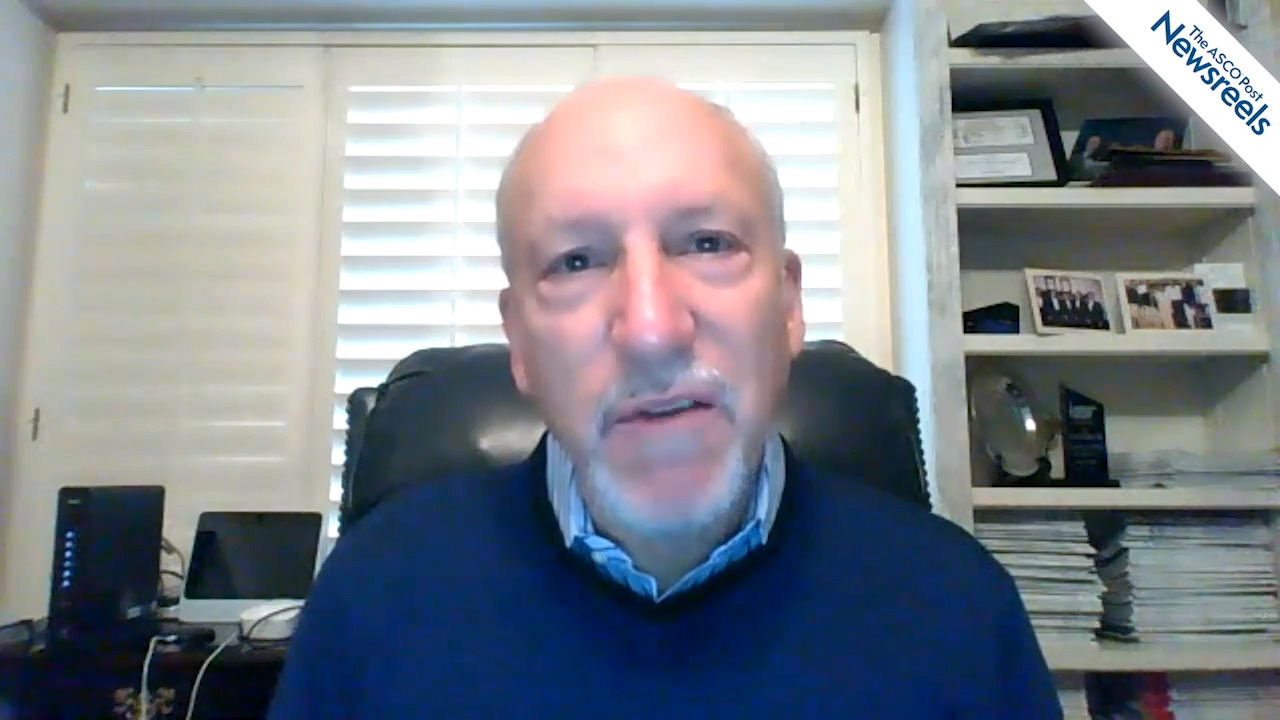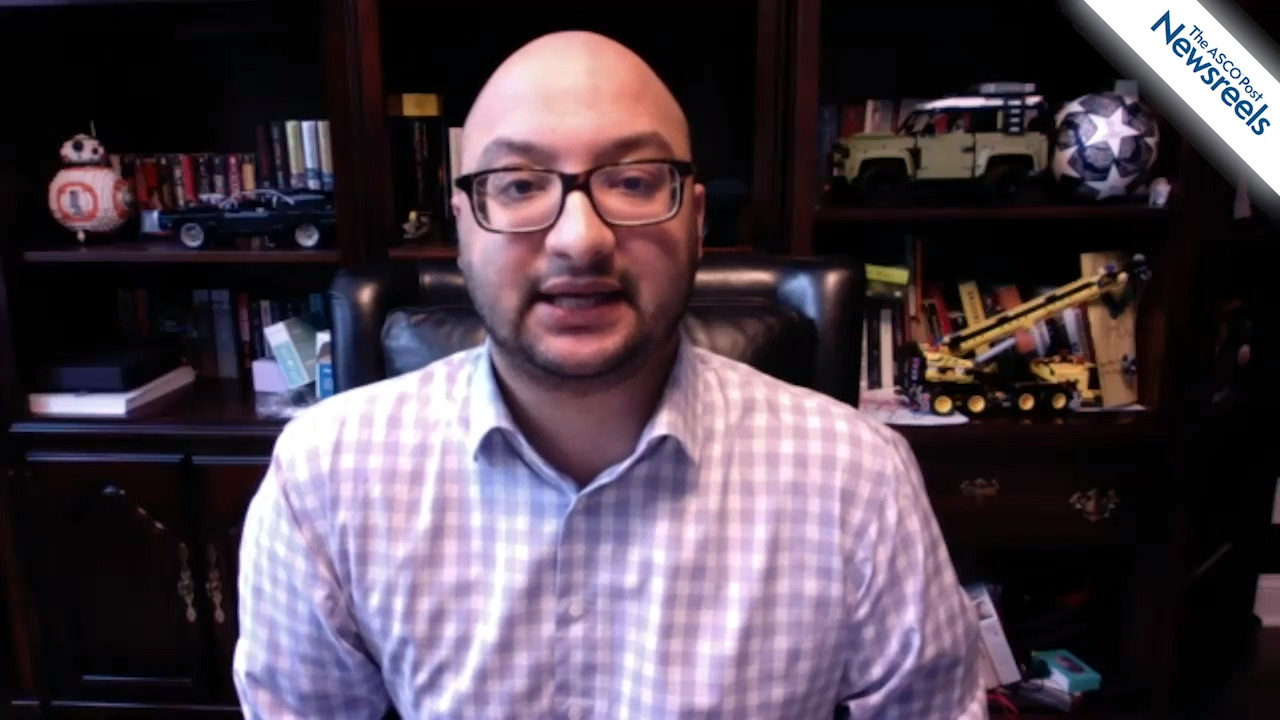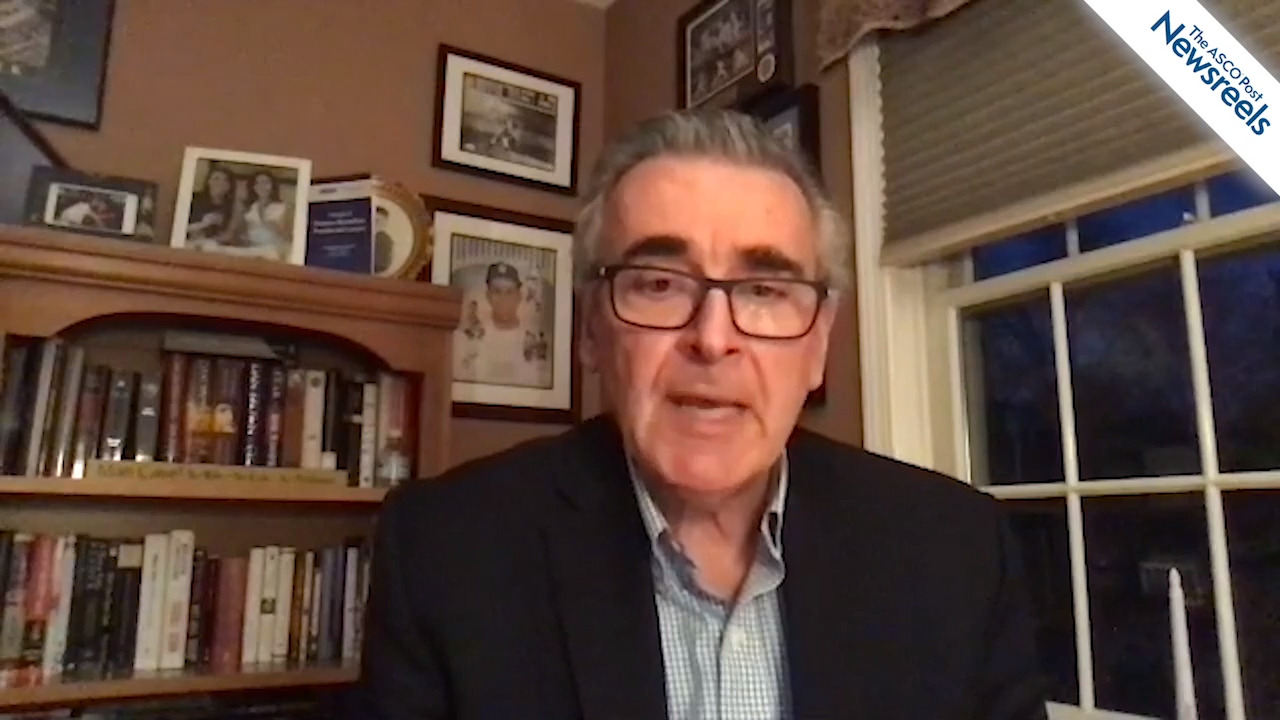Elizabeth A. Mittendorf, MD, PhD, on Her Plenary Lecture: Local Regional Management Following Neoadjuvant Therapy
2020 San Antonio Breast Cancer Symposium
Elizabeth A. Mittendorf, MD, PhD, of Brigham and Women’s Hospital, summarizes her plenary talk, which featured the uncertainties in treatment knowledge: excision of postchemotherapy calcifications; the best sentinel lymph node biopsy technique for patients with node-positive disease who convert to node-negative disease with neoadjuvant chemotherapy; whether immunohistochemistry should be routinely used for sentinel lymph node evaluation; and the role of radiation therapy in this patient population.
The ASCO Post Staff
Roisin M. Connolly, MD, of University College Cork, discusses phase III results from the E2112 trial, which showed exemestane plus entinostat did not improve survival in aromatase inhibitor–resistant advanced HR-positive, HER2-negative breast cancer (Abstract GS4-02).
The ASCO Post Staff
Lee S. Schwartzberg, MD, of the West Cancer Center, discusses phase III results from the CONTESSA study, which showed that an all-oral regimen of tesetaxel plus a reduced dose of capecitabine significantly improved progression-free survival compared with capecitabine alone in patients with HER2-negative, hormone receptor–positive metastatic breast cancer previously treated with a taxane (Abstract GS4-01).
Editor's note: On March 22, 2021, Odonate Therapeutics announced it was discontinuing the development of tesetaxel and will close the company's operations. Read more here.
The ASCO Post Staff
Ann H. Partridge, MD, MPH, of Dana-Farber Cancer Institute, discusses results from the ALTERNATE trial on response to neoadjuvant chemotherapy in postmenopausal women with clinical stage II or III estrogen receptor–positive and HER2-negative breast cancer that is resistant to endocrine therapy. The findings highlight the need for more effective treatments in this high-risk population (Abstract GS4-05).
The ASCO Post Staff
Chirag Shah, MD, of the Cleveland Clinic, discusses the impact of DCISionRT testing on radiation therapy recommendations for patients with ductal carcinoma in situ following lumpectomy. His study found that despite using traditional favorable-risk criteria, radiation recommendations were changed in more than 40% of patients (Abstract PS6-17).
The ASCO Post Staff
Joseph A. Sparano, MD, of the Montefiore Medical Center and Albert Einstein College of Medicine, discusses the development and validation of a tool that integrates the 21-gene recurrence score and clinicopathologic features to individualize prognosis for distant recurrence and predict chemotherapy benefit in patients with early breast cancer with greater precision (Abstract GS4-10).





